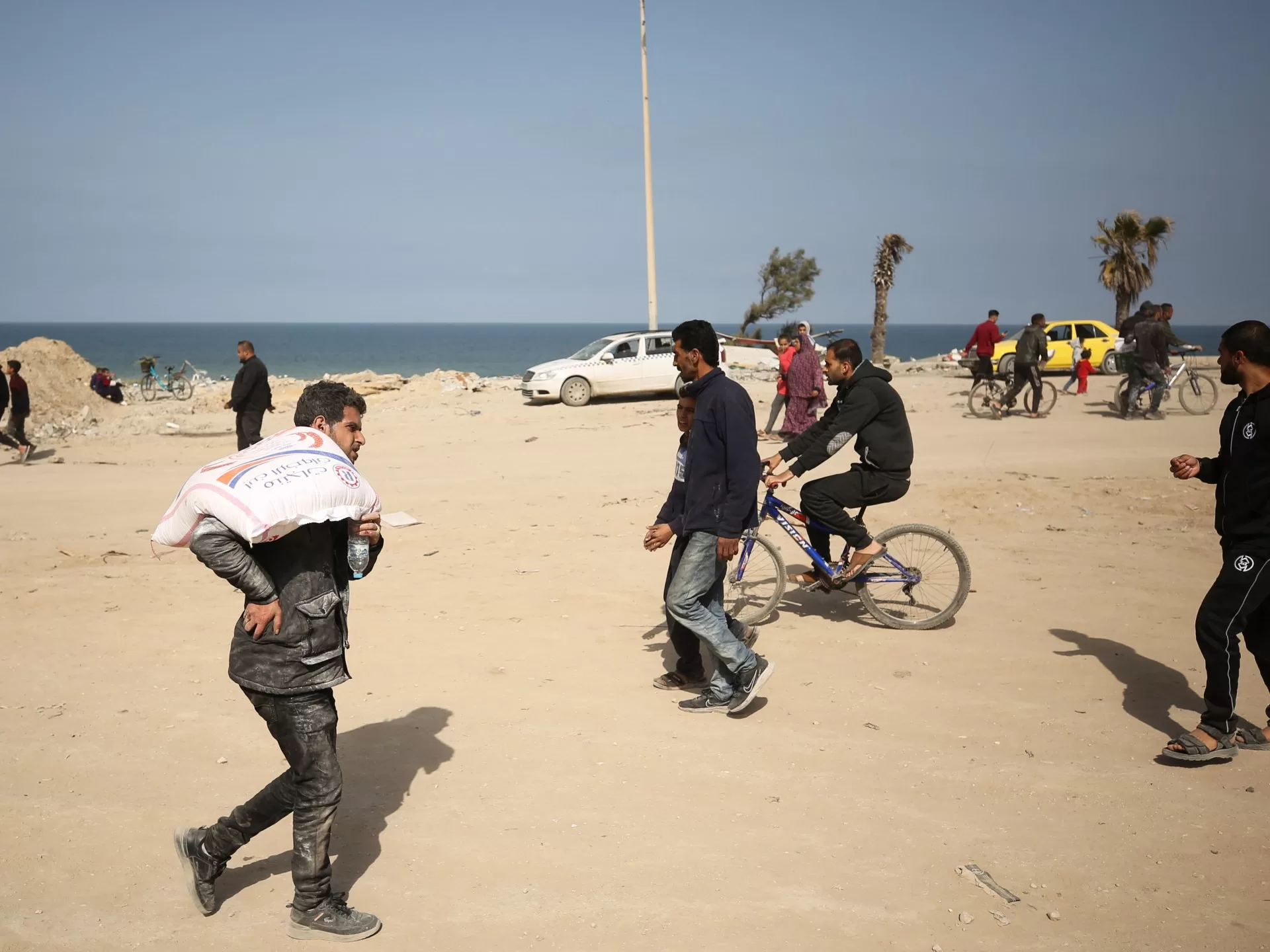The officials said Biden will make the announcement on Thursday night during his State of the Union speech, an annual address delivered to members of the US Congress.
Under the plan, the US military would set up the pier off the coast of Gaza, but US troops would not be on the ground, the officials said.
They did not provide further logistics of the plan, but one official said the US has “unique capabilities” and can do things from “just offshore”.
A United Nations spokesperson, Stephane Dujarric, said his organisation welcomed the announcement in a statement to the press.
“Any way to get more aid into Gaza, whether by sea or airdrop, is obviously good,” Dujarric told reporters. “We need more entry points, and we need a larger volume of aid to come in by land.”
However, he emphasised that the international community needs to focus on large-scale food deliveries by land, in order to address the humanitarian crisis unfolding in Gaza.
An unnamed Israeli official, speaking to the Reuters news agency, likewise said Israel “fully supports” the construction of a “temporary dock” in Gaza.
The announcement has come as US President Joe Biden continues to face outrage for his administration’s political and material support for Israel in the war on Gaza.
The Biden administration has refused to call for a complete ceasefire and has continued to supply weapons to Israel for its war.
Israel’s bombardment and ground operations have killed at least 30,800 Palestinians since October 7, when the Palestinian group Hamas launched an attack on southern Israel that killed at least 1,139 people.
However, amid increasing political pressure, the administration has shifted its tone slightly in recent weeks.
Last week, Vice President Kamala Harris called for a temporary “ceasefire” for the first time, although she was only referring to a pause in fighting while Hamas and Israel negotiated a hostage exchange.
Over the weekend, the US began airdropping aid to Gaza, where Jamie McGoldrick, the UN’s Humanitarian Coordinator for the Occupied Palestinian Territory, told reporters on Wednesday that “children are dying from hunger”.
The UN has said that a state of famine in Gaza is “almost inevitable” and could be declared as early as next week. McGoldrick said that, while air drops and naval deliveries help to distribute aid, an increase in reliable ground deliveries is more urgently needed.
Aid groups have accused Israeli forces of restricting ground deliveries, both into and within Gaza. But Israel has denied it is impeding relief efforts.
‘Destroying the food system’
In a post on the social media platform X on Thursday, Sarah Leah Whitson, the executive director of the Washington-based Democracy for the Arab World Now (DAWN), called the latest Biden plan one of many “workarounds to Israel’s deliberate [and] persistent blockade of aid to Gaza”.
Earlier in the day, Michael Fakhri, the UN special rapporteur on the right to food, also warned that Israel’s actions go beyond short-term impediments, representing a broader assault on Gaza’s stability.
“Israel is not only denying and restricting the flow of humanitarian aid into Gaza. Israel is destroying the food system in Gaza,” he said in a speech to the UN Human Rights Council.
Fakhri called it a “starvation campaign”.
For their part, the senior US officials said the new port “will provide the capacity for hundreds of additional truckloads of assistance each day”.
One official added that “significant capability will take a number of weeks to plan and execute”. Transporting supplies will also involve establishing a maritime corridor from Cyprus.
The officials said Israel had been informed about the plan, and the two countries were working together on security requirements.
They added the US was also coordinating with “partners and allies”, including the UN and aid organisations.
